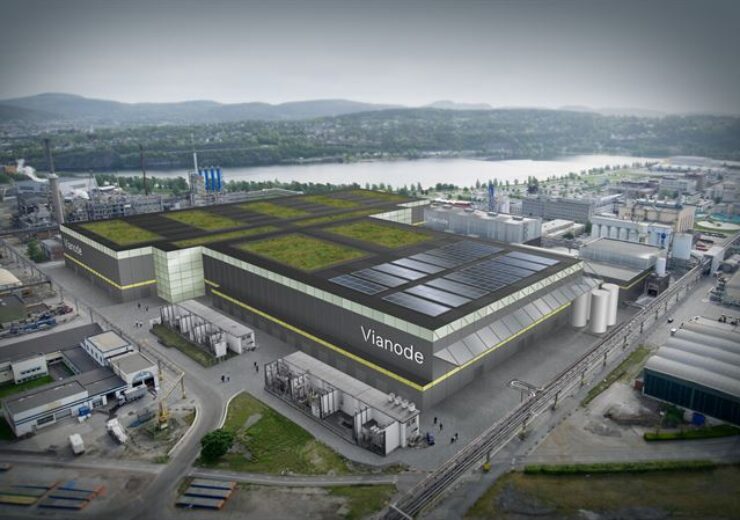By 2024, the battery materials facility is expected to produce enough anode graphite for about 20,000 EVs annually

Vianode will build its first industrial-scale battery materials plant in Norway. (Credit: Vianode)
Vianode has announced an investment of nearly NOK2bn ($194m) to construct its first large-scale plant for the production of sustainable battery materials in Herøya, Norway.
The Norwegian synthetic graphite manufacturer is owned by Elkem, Hydro, and Altor Equity Partners.
By 2024, Vianode’s battery materials facility is expected to produce enough anode graphite for nearly 20,000 electric vehicles (EVs) annually.
Furthermore, the Norwegian firm intends to build a second-phase plant by 2030 that will be able to supply two million EVs annually with battery materials.
Vianode interim CEO and board executive chair Asbjørn Søvik said: “The investment decision marks a historic step for Vianode and its owners and is a recognition of the work put in by both our employees and partners.
“Based on strong support from owners Elkem, Hydro and Altor, Vianode now has a solid foundation to succeed with building industrial leadership in advanced battery materials with a green footprint.”
According to Vianode, the production of its graphite materials emit up to 90% less carbon dioxide than the currently available standard materials.
The company claimed that its materials enhance the properties in batteries. These include increased range, faster charging, longer service life, and increased recyclability and safety.
Additionally, the development of Vianode’s products is said to be based on specialised expertise in closed production systems, high-temperature processes, reduced energy consumption, and accessibility to renewable energy sources.
Vianode general manager Stian Madshus said: “The global demand for batteries is growing rapidly, driven by the green transition, but there is not sufficient ramp-up of battery materials production.
“Europe is facing a significant shortfall of graphite materials towards 2030, which Vianode aims to address with our high-performance offerings. Automakers and authorities are also increasingly focused on a sustainable value chain, where Vianode has a unique offering with our low CO2 footprint.”


